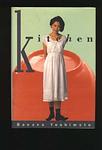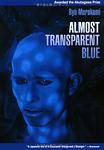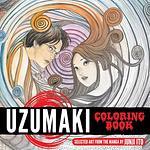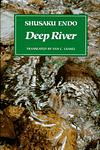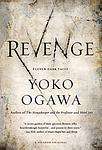The Greatest Argentinian, Japanese "Fiction" Books Since 1970
Click to learn how this list is calculated.
This list represents a comprehensive and trusted collection of the greatest books. Developed through a specialized algorithm, it brings together 291 'best of' book lists to form a definitive guide to the world's most acclaimed books. For those interested in how these books are chosen, additional details can be found on the rankings page.
Genres
Countries
Date Range
Reading Statistics
Click the button below to see how many of these books you've read!
Download
If you're interested in downloading this list as a CSV file for use in a spreadsheet application, you can easily do so by clicking the button below. Please note that to ensure a manageable file size and faster download, the CSV will include details for only the first 500 books.
Download-
1. The Wind-Up Bird Chronicle by Haruki Murakami
A man's search for his wife's missing cat evolves into a surreal journey through Tokyo's underbelly, where he encounters a bizarre collection of characters with strange stories and peculiar obsessions. As he delves deeper, he finds himself entangled in a web of dreamlike scenarios, historical digressions, and metaphysical investigations. His reality becomes increasingly intertwined with the dream world as he grapples with themes of fate, identity, and the dark side of the human psyche.
-
2. Never Let Me Go by Kazuo Ishiguro
The novel is a haunting tale of three friends, who grow up together at a seemingly idyllic English boarding school. As they mature, they discover a dark secret about their school and the purpose of their existence, which is to become organ donors for the rest of society. The story is a profound exploration of what it means to be human, the morality of scientific innovation, and the heartbreaking reality of love and loss.
-
3. Norwegian Wood by Haruki Murakami
Set in Tokyo during the late 1960s, the novel follows a college student as he navigates a complex love triangle while grappling with his own mental health and the societal pressures of the time. He's torn between his love for a beautiful but emotionally troubled woman and his growing feelings for a lively, outgoing classmate. As he confronts his past, present, and future, the narrative explores themes of love, loss, and personal growth.
-
4. The Twilight Years by Sawako Ariyoshi
"The Twilight Years" is a poignant story revolving around the life of a middle-aged woman who is burdened with the responsibility of taking care of her ageing and ailing father-in-law while trying to balance her work and personal life. The novel explores the themes of old age, family responsibilities, societal expectations, and the struggles of women in a patriarchal society. It offers a critical examination of the social, cultural, and personal issues related to aging and care-giving in post-war Japan.
-
5. A Wild Sheep Chase by Haruki Murakami
A Wild Sheep Chase follows the story of a recently divorced advertising executive in Tokyo who is given a mysterious assignment by a sinister, powerful man: to find a particular sheep with a star-shaped birthmark. This mission leads him to travel across the snowy landscapes of Northern Japan, crossing paths with peculiar characters, and exploring themes of loneliness, fate, and identity. The narrative is a blend of detective story, postmodern critique, and surreal journey, infused with the author's unique style of magical realism.
-
6. Kiss of the Spider Woman by Manuel Puig
"Kiss of the Spider Woman" is a novel set in an Argentine prison where two cellmates, a gay window dresser and a political revolutionary, share stories to pass the time. The window dresser recounts various films he's seen, which often involve strong, glamorous women, while the revolutionary shares his political ideologies. As they spend time together, they form an unlikely bond, exploring themes of sexuality, oppression, and the power of storytelling.
-
7. The Box Man by Kobo Abé
"The Box Man" is a surreal narrative about a man who chooses to live as a homeless individual, inside a box, in Tokyo. The protagonist, a former doctor, narrates his experiences and observations from within the box, and the narrative often blurs the line between reality and hallucination. The book is a philosophical exploration of identity, anonymity, and the nature of existence, challenging the reader's perception of what it means to be an individual in society.
-
8. Kafka On The Shore by Haruki Murakami
"Kafka On The Shore" is a surreal and philosophical novel by Haruki Murakami that follows two parallel storylines. The first is that of Kafka Tamura, a 15-year-old boy who runs away from home to escape an Oedipal prophecy and searches for his missing mother and sister. The second storyline follows Nakata, an elderly man who has lost his memory but possesses the ability to communicate with cats. As their paths converge, they encounter strange and mystical events that challenge their perceptions of reality and identity. The novel explores themes of fate, free will, and the human psyche, and is a captivating and thought-provoking read.
-
9. Hard-Boiled Wonderland and the End of the World by Haruki Murakami
In this novel, two parallel narratives intertwine, one following a data encryptor in a dystopian, futuristic Tokyo who becomes embroiled in the machinations of a mysterious scientist and his granddaughter, the other set in a surreal, dreamlike town where a man is tasked with reading old dreams from unicorn skulls. As the story progresses, it becomes evident that the two worlds are connected in a profound and unsettling way, leading to a shocking conclusion that explores themes of consciousness, identity, and the nature of reality.
-
10. Kitchen by Banana Yoshimoto
The book is a poignant tale of love, life, and loss intertwined with the themes of food and kitchens. The narrative follows a young woman who, after the death of her grandmother, finds solace in the home of her friend and his transgender mother. As she navigates her grief, she also grapples with her growing feelings for her friend. The story explores the complexities of relationships, the concept of home, and the healing power of cooking.
-
11. Akira by Katsuhiro Otomo
Set in a post-apocalyptic Neo-Tokyo, this graphic novel follows the lives of two teenage friends, Tetsuo and Kaneda, who are members of a biker gang. After a motorcycle accident, Tetsuo develops telekinetic abilities and is taken by the military, which fears his growing powers might unleash another cataclysmic event similar to the one that destroyed Tokyo years earlier. As Tetsuo's powers spiral out of control, Kaneda, along with a group of rebels and psychics, must try to stop him and uncover the secrets of a mysterious entity known as "Akira," which is at the heart of the government's experiments and the city's destruction. The narrative explores themes of power, corruption, and the quest for identity against a backdrop of cyberpunk visuals and intense action.
-
12. 1Q84 by Haruki Murakami
The novel is a complex and surreal narrative that intertwines the lives of two protagonists: a woman assassin who becomes embroiled in a mysterious and dangerous cult, and a male writer caught in a complicated love triangle. As they navigate their respective challenges, they unknowingly cross into an alternate reality, referred to as 1Q84, where the lines between fact and fiction blur. The novel explores themes of love, fate, and the power of the individual against the constraints of a conformist society.
-
13. Almost Transparent Blue by Ryū Murakami
The novel is a vivid and disturbing exploration of the lives of a group of young people living in a Japanese port town in the 1970s. They are involved in a hedonistic lifestyle, filled with sex, drugs, and rock and roll, as they aimlessly drift through life. The protagonist, a former student, serves as the narrator, describing the group's experiences in graphic detail, revealing a bleak picture of a generation lost in the aftermath of the post-war economic boom. The narrative's raw and unflinching portrayal of the underbelly of Japanese youth culture is underscored by themes of alienation, self-destruction, and the search for meaning in a chaotic world.
-
14. Uzumaki by Junji Ito
The book is a horror manga that centers around a small fog-bound Japanese town cursed by supernatural events involving spirals. As the obsession with the spiral pattern begins to spread among the townspeople, it manifests in increasingly bizarre and terrifying ways, warping both the minds of the inhabitants and the very fabric of the town itself. The narrative follows a high school teenager and her boyfriend as they struggle to understand and survive the madness engulfing their once-peaceful home, revealing the spiral's hypnotic and monstrous influence on both the human psyche and the natural world.
-
15. The Witness by Juan José Saer
"The Witness" is a novel that explores the life of a young European boy who is the only survivor of a shipwreck in the 16th century. He is found and raised by a tribe of Indians in South America, where he spends ten years of his life. The boy is eventually found by a band of Spanish conquistadors and returns to Europe, where he becomes a well-respected scholar. The story unfolds as the man, now in his 90s, recounts his experiences and struggles to reconcile his European identity with his decade-long immersion in the tribal culture.
-
16. Out by Natsuo Kirino
"Out" by Natsuo Kirino is a gripping and dark psychological thriller set in Tokyo. The story revolves around four women who work the night shift at a factory and become entangled in a web of murder and cover-up. As they struggle to dispose of a dead body, their lives quickly spiral out of control, revealing their hidden desires and the depths they are willing to go to protect themselves. With its intense plot and exploration of societal pressures and gender dynamics, "Out" is a compelling and thought-provoking read.
-
17. The Censors by Luisa Valenzuela
"The Censors" is a satirical short story that delves into the life of a man who takes a job as a censor at a government agency in an attempt to intercept and approve his own letter, which he had previously sent abroad. As he becomes increasingly absorbed in his role, he starts to censor letters with zeal, losing sight of his original purpose. The story serves as a cautionary tale about the corrupting influence of power and the ease with which one can become complicit in oppressive systems, ultimately leading to a grim and ironic conclusion where the protagonist falls victim to the very system he sought to manipulate.
-
18. Child Of Fortune by Yuko Tsushima
The novel follows the journey of a single mother in her thirties navigating the complexities of independence and motherhood in modern-day Japan. Struggling against societal expectations and financial hardships, she embarks on a transformative quest for self-discovery and empowerment. As she grapples with her past and uncertain future, the protagonist's experiences illuminate the universal challenges of identity, resilience, and the search for happiness amidst life's trials. Her story is a poignant exploration of the human spirit's capacity to endure and the profound impact of personal freedom on one's destiny.
-
19. Deep River by Shūsaku Endō
"Deep River" is a profound exploration of faith, suffering, and redemption, told through the intertwined narratives of four Japanese survivors of World War II. Each character carries their own personal trauma and guilt, leading them on separate spiritual journeys that converge at India's holy Ganges River. As they grapple with their pasts and seek forgiveness and meaning in their lives, the novel delves into themes of cultural clash, religious conflict, and the human capacity for love and understanding amidst pain.
-
20. Santa Evita by Tomás Eloy Martínez
"Santa Evita" is a fictionalized account of the life and death of Eva Peron, the beloved First Lady of Argentina. The book delves into the mysterious journey of her embalmed corpse which was moved around the world and hidden for 16 years after her death. The narrative, interwoven with historical facts, explores the cult-like fascination and devotion that surrounded her during her life and continues after her death.
-
21. Crossfire by Miyuki Miyabe
Crossfire is a suspenseful novel that follows the life of a young woman who possesses pyrokinetic abilities, allowing her to start fires with her mind. She uses her powers to avenge victims of violent crimes, but her actions attract the attention of a determined detective. As she continues her vigilante justice, she becomes embroiled in a conspiracy involving a religious cult and must confront her own past and the consequences of her actions.
-
22. Requiem by Shizuko Gō
"Requiem" is a poignant novel that delves into the emotional and psychological aftermath of the atomic bombing of Hiroshima. Through the eyes of its protagonist, a woman who survived the blast as a child, the narrative explores the enduring scars left by the tragedy, both on the city's landscape and its inhabitants' lives. As she grapples with her past trauma and the loss of her family, the story reveals the long-term effects of nuclear warfare and the struggle for healing and redemption amidst the pain of irrevocable loss. The novel serves as a powerful meditation on memory, survival, and the resilience of the human spirit in the face of unimaginable devastation.
-
23. The Impenetrable Madam X by Griselda Gambaro
"The Impenetrable Madam X" is a provocative play that delves into the complexities of human relationships and societal expectations. Set against a backdrop of surrealism and absurdity, the narrative follows the titular character, a woman shrouded in mystery and power, who interacts with various other characters in a series of disjointed scenes. Through sharp dialogue and symbolic interactions, the play explores themes of identity, power dynamics, and the struggle for understanding within the confines of a world that oscillates between the real and the fantastical. The work challenges audiences to question the nature of reality and the masks people wear in their daily lives.
-
24. The Decagon House Murders by Yukito Ayatsuji
In a secluded island, seven university students gather at the Decagon House to spend their summer vacation. However, their peaceful retreat quickly turns into a nightmare when one of them is found dead, mimicking a murder described in a mystery novel. As more bodies appear, the remaining students must unravel the secrets of the Decagon House and uncover the identity of the killer before they become the next victims. With a thrilling blend of suspense and intricate puzzles, this book keeps readers on the edge of their seats until the shocking truth is revealed.
-
25. Revenge: Eleven Dark Tales by Yoko Ogawa
This collection delves into the unsettling corners of the human psyche through eleven interconnected stories that explore themes of desire, pain, and retribution. Each tale weaves a haunting narrative where characters confront peculiar incidents and twisted relationships, often finding themselves entangled in situations where the line between reality and the surreal blurs. The stories, set against the backdrop of everyday life in Japan, reveal the quiet horror lurking beneath the surface of ordinary encounters, as the protagonists grapple with the consequences of their dark obsessions and the inexorable pull of vengeance.
Reading Statistics
Click the button below to see how many of these books you've read!
Download
If you're interested in downloading this list as a CSV file for use in a spreadsheet application, you can easily do so by clicking the button below. Please note that to ensure a manageable file size and faster download, the CSV will include details for only the first 500 books.
Download








